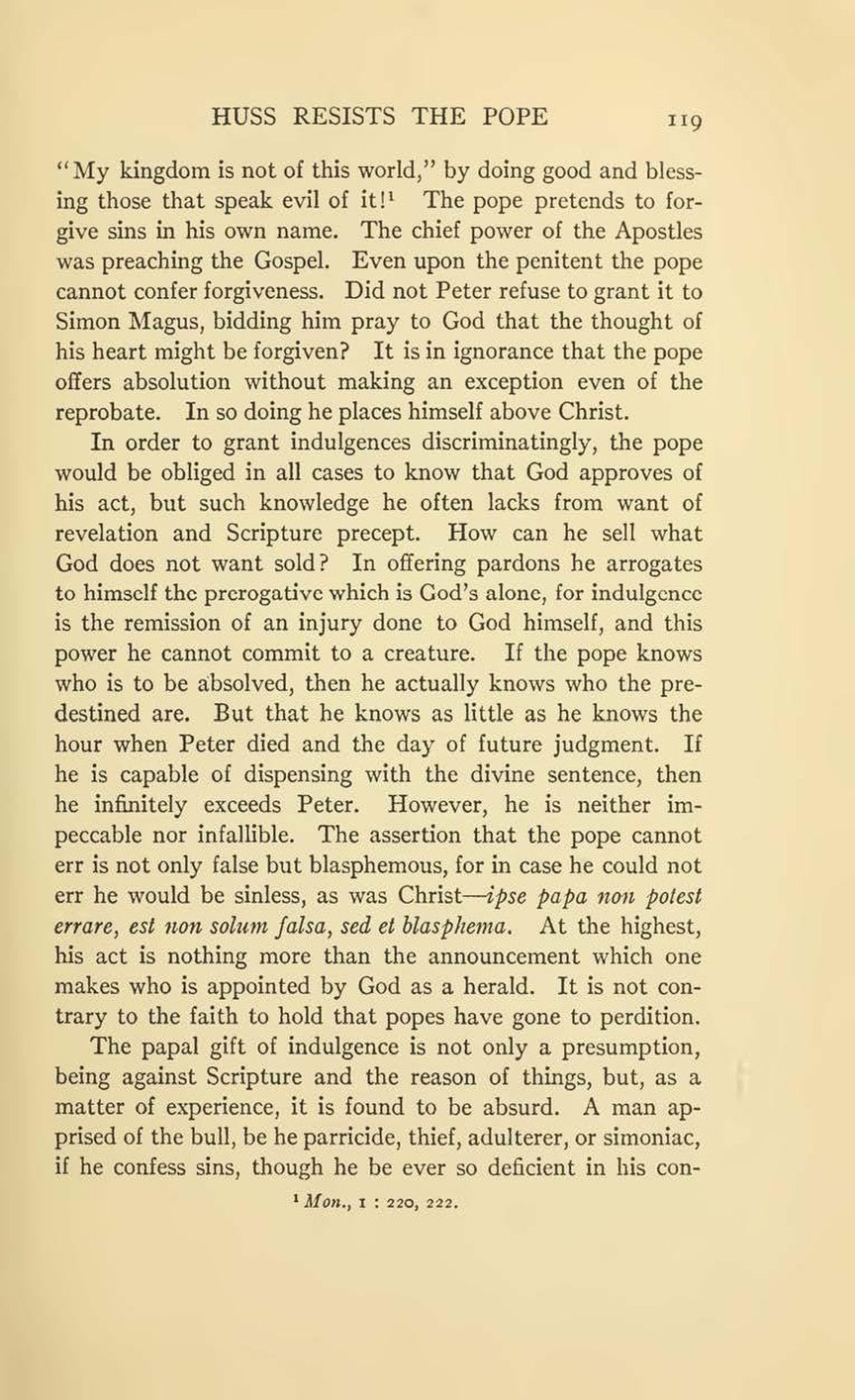“My kingdom is not of this world,” by doing good and blessing those that speak evil of it![1] The pope pretends to forgive sins in his own name. The chief power of the Apostles was preaching the Gospel. Even upon the penitent the pope cannot confer forgiveness. Did not Peter refuse to grant it to Simon Magus, bidding him pray to God that the thought of his heart might be forgiven? It is in ignorance that the pope offers absolution without making an exception even of the reprobate. In so doing he places himself above Christ.
In order to grant indulgences discriminatingly, the pope would be obliged in all cases to know that God approves of his act, but such knowledge he often lacks from want of revelation and Scripture precept. How can he sell what God does not want sold? In offering pardons he arrogates to himself the prerogative which is God’s alone, for indulgence is the remission of an injury done to God himself, and this power he cannot commit to a creature. If the pope knows who is to be absolved, then he actually knows who the predestined are. But that he knows as little as he knows the hour when Peter died and the day future judgment. If he is capable of dispensing with the divine sentence, then he infinitely exceeds Peter. However, he is neither impeccable nor infallible. The assertion that the pope cannot err is not only false but blasphemous, for in case he could not err he would be sinless, as was Christ—ipse papa non potest errare, est non solum falsa, sed et blasphema. At the highest, his act is nothing more than the announcement which one makes who is appointed by God as a herald. It is not contrary to the faith to hold that popes have gone to perdition.
The papal gift of indulgence is not only a presumption, being against Scripture and the reason of things, but, as a matter of experience, it is found to be absurd. A man apprised of the bull, be he parricide, thief, adulterer, or simoniac, if he confess sins, though he be ever so deficient in his con-
- ↑ Mon., 1: 220, 222.
